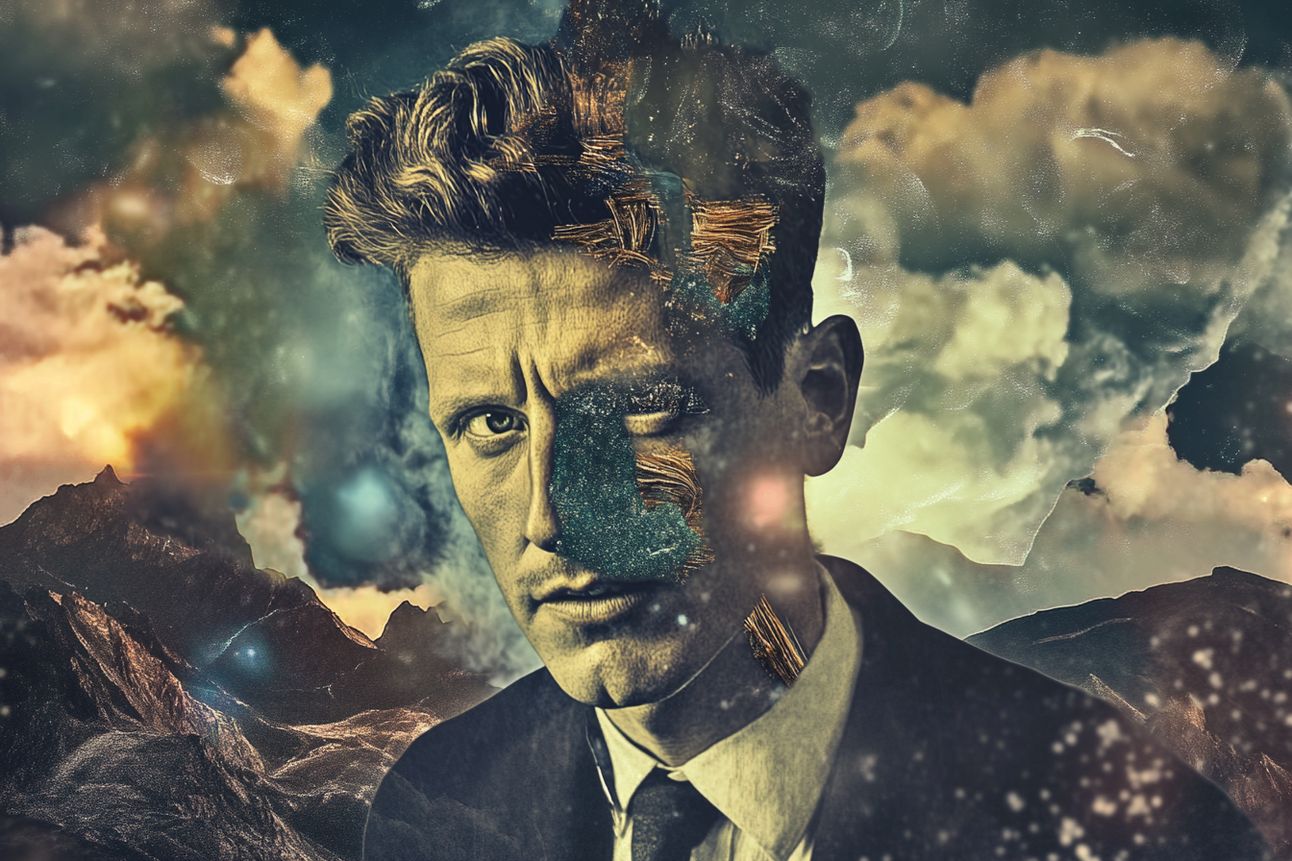
I first encountered Ludwig Wittgenstein's ideas about language during a philosophy class in college. At the time, I thought, "Great, another dead white guy with an unpronounceable name telling us how to think." Little did I know that his work would become a cornerstone of my daily life, helping me navigate one of the most profound relationships I've ever known.
My daughter is non-verbal autistic. When we received her diagnosis, it felt like the world had shifted on its axis. All the parenting books I'd read, all the expectations I'd built – they suddenly seemed irrelevant. I found myself in uncharted territory, trying to connect with my child in a world where words often failed us both.
That's when Wittgenstein's ideas took on a whole new meaning for me. He argued that language is like a map of reality, but that this map has serious limitations. For most of us, these limitations might show up in trying to describe a vivid dream or a breathtaking sunset. For my daughter and me, they're a daily reality we navigate together.
Wittgenstein believed that some of the most profound aspects of human experience – ethics, aesthetics, the meaning of life – are essentially unspeakable. As I watch my daughter experience the world, I often wonder: What beauty does she see that she can't express in words? What depths of emotion does she feel that I can't fully understand?
I remember one particularly frustrating day when my daughter was trying to communicate something to me, and I just couldn't figure it out. She was gesturing, making sounds, clearly upset, and I felt utterly helpless. In that moment, I thought about Wittgenstein's famous quote: "The limits of my language mean the limits of my world." But for us, it wasn't about the limits of language – it was about pushing beyond those limits, finding new ways to understand each other.
We've developed our own language of sorts – a combination of gestures, pictures, and assistive technology. It's like we're constantly expanding our shared map of reality, finding new ways to navigate the territory of our relationship. Some days, it feels like we're explorers in uncharted lands, discovering new ways to connect and communicate.
This experience has made me reflect deeply on Wittgenstein's idea that many philosophical problems arise from misunderstandings about the limits of language. In our case, the "problem" isn't my daughter's lack of verbal language – it's the world's limited understanding of different forms of communication.
I think about this a lot in the age of social media, where we're constantly trying to distill our experiences into 280 characters or a perfectly crafted Instagram caption. How much of the richness of life is slipping through the cracks of our hashtags and emojis? And how much are we missing by assuming that verbal or written language is the only valid form of expression?
My daughter has taught me that communication goes far beyond words. A smile, a touch, a particular movement – these can convey more meaning than a thousand words. She's shown me that there's a whole world of expression that exists outside the boundaries of traditional language.
Don't get me wrong – it's not always easy. There are days when the inability to simply ask "What's wrong?" and get a verbal response feels overwhelming. But there's also incredible beauty in the moments of connection we share, the understanding we reach without a single word being spoken.
In a world that often demands constant verbal communication, there's something profound about acknowledging the unspeakable. It's a reminder that some of the most important things in life – love, connection, understanding – exist in a space beyond words.
So the next time you find yourself at a loss for words, don't sweat it. You're in good company. Wittgenstein would probably just nod knowingly and say, "Whereof one cannot speak, thereof one must be silent." Or as I've learned from my daughter: Sometimes, the most powerful communication doesn't need words at all.
As I continue to help my daughter navigate and express herself in this world, I'm grateful for the lessons Wittgenstein's philosophy has taught me. It's not about the limits of language – it's about expanding our understanding of what language can be. And in that expansion, we find new ways to connect, to understand, and to love.
